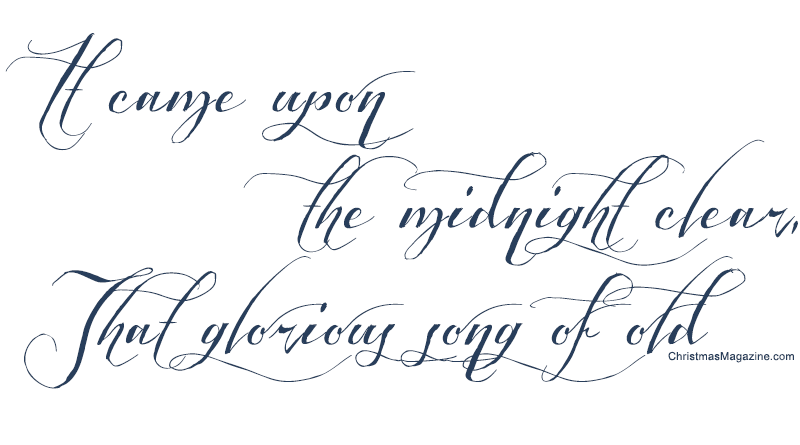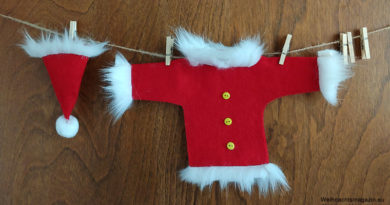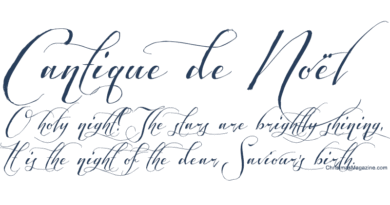It Came upon the Midnight Clear
Edmund H. Sears, Richard S. Willis
Source: The Christmas Caroler’s Book, 1935
The lovely poem, by Rev. Edmund Hamilton Sears, was first published in the Christian Register, in 1850. Rev. Dr. Morrison, editor of the Register, received the poem in December, 1849 and was so delighted with it that he read it at several Christmas programs. He published it in his magazine in December of the following year.
Dr. Edmund Sears was a Unitarian minister and poet, who “believed and preached the Divinity of Christ”. Spending his entire life in Massachusetts where he served several pastorates, he edited the I (1859-71), and published several books and poems of religious nature. He is especially remembered for his two Christmas carols, Calm On the Listening Ear, and It Came upon the Midnight Clear. The latter was send to a brother clergyman with a request that he find a musical setting for it. This he did, adapting it to an old hymn-tune which is occasionally used today.
The carol-tune which has carried the song to its present popularity was composed by Richard Storrs Willis, musician and composer, of Boston. On reading Sear’s poem, he was inspired by its natural beauty to write the score which is now so familiar to us all. His melody is called Carol and is one of the most worthy of the composed carol-tunes.
Richard Willis was a brother of Nathanial Parker Willis, the poet. His father, Deacon Nathaniel Willis, was the founder of the Youth’s Companion.
It Came upon the Midnight Clear is widely used in England and has become a popular favorite in America.
It Came upon the Midnight Clear
It came upon the midnight clear,
That glorious song of old,
From angels bending near the earth,
To touch their harps of gold:
‘Peace on the earth, good will to men,’
From heav’n’s all-gracious King.
The world in solemn stillness lay,
To hear the angels sing!
Yet with the woes of sin and strife
The world has suffered long,
Beneath the angel strain have rolled
Two thousand years of wrong;
And man, at war with man, hears not
The love song which they bring:
O hush the noise, ye men of strife,
And hear the angels sing!
Still thro’ the cloven skies they come,
With peaceful wings unfurl’d;
And still their heav’nly music floats
O’er all the weary world:
Above its sad and lowly plains
They bend on hov’ring wing,
And ever o’er its Babel sounds
The blessed angels sing.
All ye, beneath life’s crushing load,
Whose forms are bending low,
Who toil along the climbing way
With painful steps and slow,
Look, now! for glad and golden hours
Come swiftly on the wing:
O rest beside the weary road,
And hear the angels sing!
For lo! the days are hast’ning on,
By prophet bards foretold,
When with the ever-circling years
Comes round the age of gold;
When peace shall over all the earth
Its ancient splendors fling,
And the whole world give back the song
Which now the angels sing!




